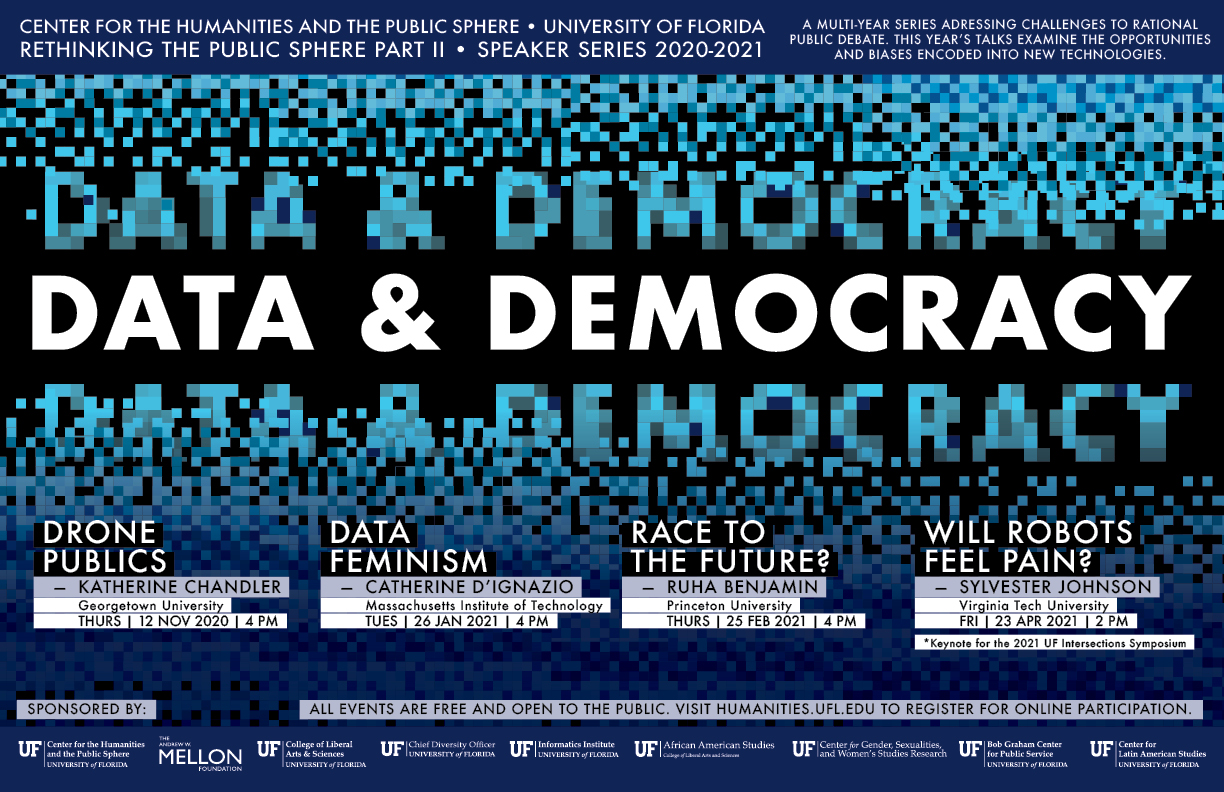
- This event has passed.
Race to the Future? Reimagining the Default Settings of Technology & Society
February 25, 2021 at 4:00 pm


From everyday apps to complex algorithms, technology has the potential to hide, speed and deepen discrimination, while appearing neutral and even benevolent when compared to racist practices of a previous era. This talk explores a range of discriminatory designs that encode inequity — what Ruha Benjamin terms the “New Jim Code.” This presentation takes us into the world of biased bots, altruistic algorithms and their many entanglements, and provides conceptual tools to decode tech promises with historically and sociologically-informed skepticism. It will also consider how race itself is a kind of tool designed to stratify and sanctify social injustice and discuss how technology is and can be used toward liberatory ends. In doing so, this talk challenges us to question not only the technologies we are sold, but also the ones we manufacture ourselves.

Ruha Benjamin is Associate Professor of African American Studies at Princeton University, where she studies the social dimensions of science, technology, and medicine. She is also the Founding Director of the Ida B. Wells JUST Data Lab, and author of two books: the award-winning Race After Technology: Abolitionist Tools for the New Jim Code (Polity Press, 2019) and Captivating Technology: Race, Carceral Technoscience, and Liberatory Imagination in Everyday Life (Duke University Press, 2019). Dr. Benjamin researches and teaches on the relationship between knowledge and power, race and citizenship, health and justice. For more information, visit www.ruhabenjamin.com.
This event is part of “Part II: Data and Democracy,” a multi-year series that responds to current challenges to rational public debate. Following Part I of the series in 2019-20 entitled “Race and the Promise of Participation,” which examined contemporary institutions that define public life, the 2020-21 speaker series turns to the question of how new technologies and the algorithms underlying ‘big data’ shape human experience, communication, and representation. This year’s talks examine how race and racism, equity and inequality, and gender shape and are produced by technological systems. From drone warfare and corporate data, to surveillance systems and robots, they reveal the human values and ideas embedded in technological advances. Over the course of two semesters, speakers in this series will call us to be thoughtful and deliberate when allowing artificial intelligence entry into our public spaces.
UF Series Funders and Co-Sponsors:
Center for the Humanities and the Public Sphere (Rothman Endowment); College of Liberal Arts and Sciences; Chief Diversity Officer; Informatics Institute; Bob Graham Center for Public Service; Center for Latin American Studies; African American Studies Program; Center for Gender, Sexualities, and Women’s Studies Research